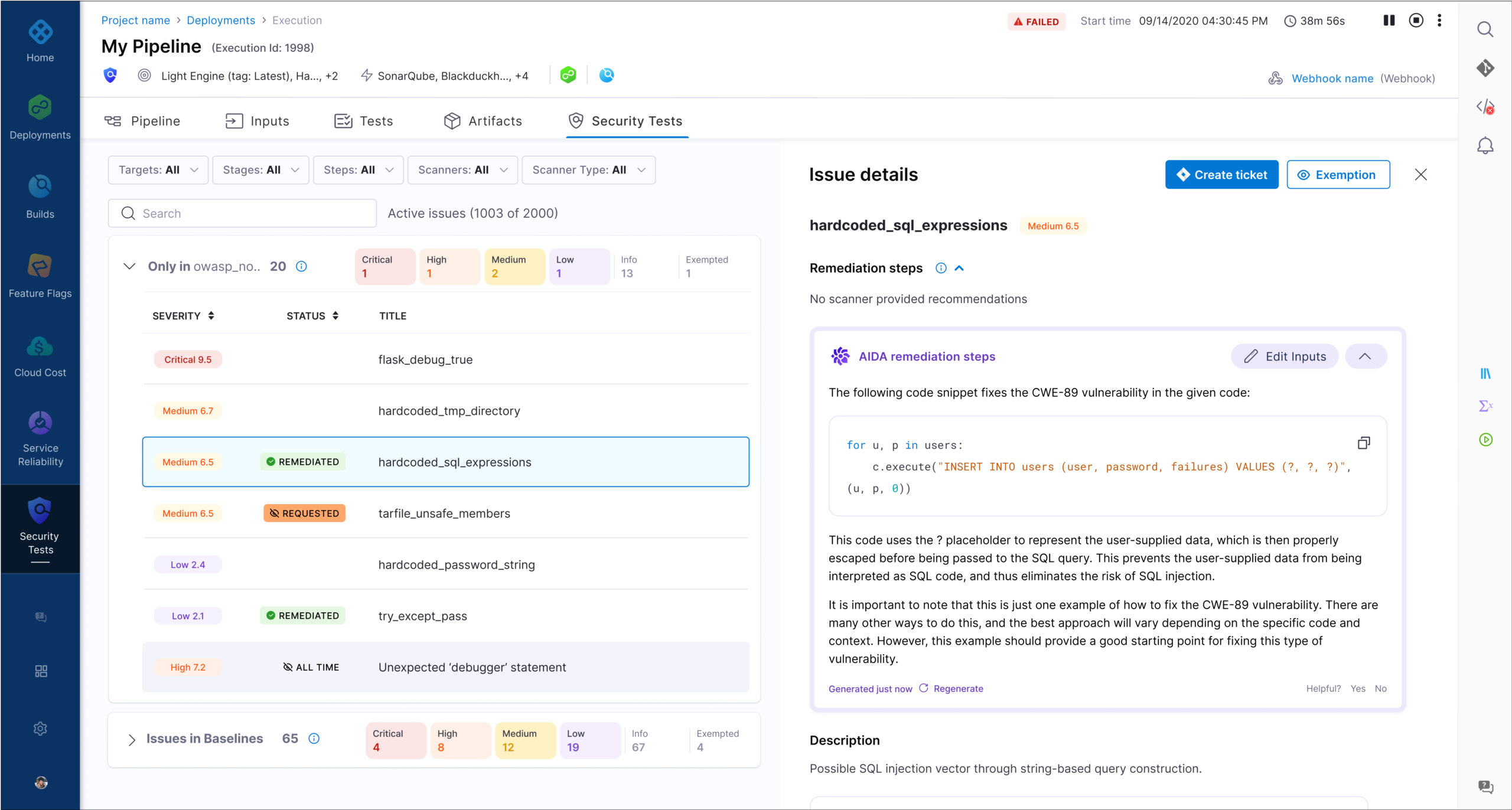Harness today added a raft of generative artificial intelligence (AI) capabilities to its continuous integration/continuous delivery (CI/CD) platform as part of a larger effort to reduce the level of manual toil that today conspires to create DevOps bottlenecks.
The added generative AI capabilities include an AI Development Assistant (AIDA), which analyzes log files and correlates error messages with known issues. It also includes the ability to use natural language to define policies for governing cloud assets and costs and an ability to automatically identify security vulnerabilities and generate code fixes.
Other generative AI capabilities that will be added to AIDA over the next three to six months include automated code reviews along with tools for creating pipelines and launching chaos engineering experiments.
Harness CEO Jyoti Bansal said these are the first of a series of generative AI capabilities that will be applied across the entire software development life cycle (SDLC) using large language models (LLMs) that the company has trained using publicly available sources. AIDA, at its core, provides a tool for creating custom prompts for launching queries against LLMs and a vector database that Harness has incorporated into its platform.
That approach means no customer data was used to create the model and none of the data used will find its way into a generative AI platform that is available to anyone, said Bansal. As a result, organizations don’t need to be concerned they light run afoul of licensing issues because proprietary code was inadvertently included in an LLM, he added.
Most of the existing generative AI capabilities that have been brought to market thus far are designed primarily to improve developer productivity, noted Bansal. Harness is now bringing the benefit of generative AI to DevOps teams that today rely on too many manual processes to manage the automations they build on behalf of application development teams, he added.
Harness is making AIDA available at no extra charge at a time when many DevOps teams will soon be evaluating the AI capabilities provided to them. Most DevOps teams are not going to want to manage workflows without being able to rely on AI to reduce toil and eliminate bottlenecks. Overall, Harness is forecasting generative AI will drive a 30% to 50% increase in DevOps productivity. In addition, Harness is forecasting there will be a 50% to 75% reduction in the time spent remediating vulnerabilities.

Bansal said that as that process occurs, Harness is betting more organizations will move to replace legacy CI/CD platform with more modern alternatives.
Previously, Harness has invested in machine learning algorithms to automate a range of DevOps tasks. Generative AI, in combination with machine learning, will transform DevOps workflows in ways that will ultimately improve both the rate at which applications can be built and their overall quality.
It’s not clear whether organizations might be willing to replace CI/CD platforms that they have been customizing for decades, but at the very least, that option is now more widely considered than ever.





